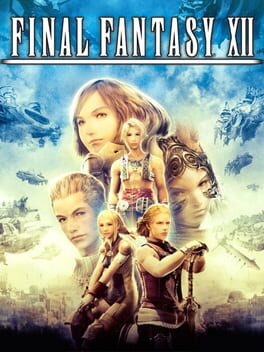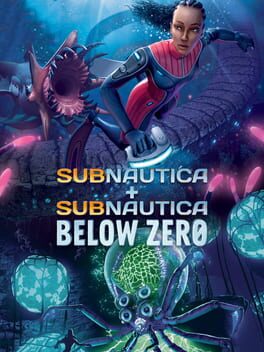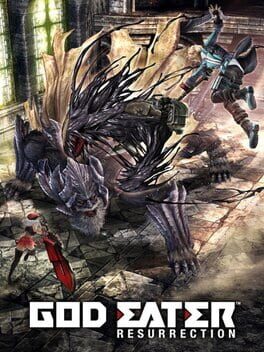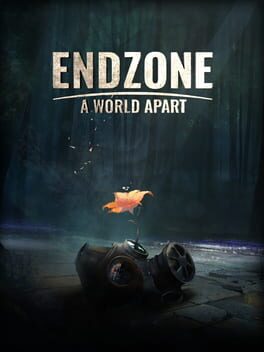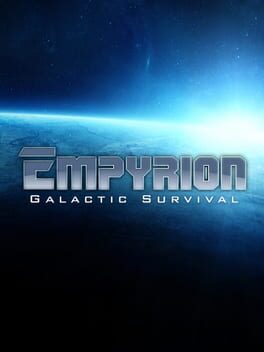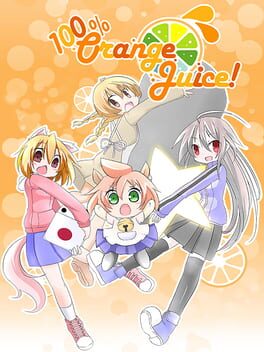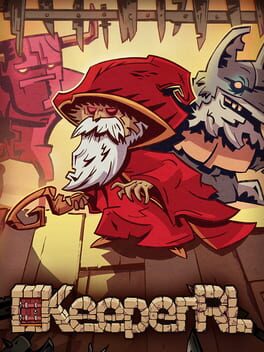Trapezohedron
2011
Portal 2 is when you have a higher budget and you want to make a sequel for the game, but eventually realize Steam is a much better revenue funnel than making games so you kind of ditch the scene after making The Orange Box.
It's a really good game with more sensible puzzles, but the puzzles have a habit of railroading you where you need to go by way of walls being more restricted.
There's at least 3 setpieces here. Broken Aperture Science, old Aperture Science and BREAKING DOWN Aperture science, which can provide some unique experiences with how you deal and solve room puzzles.
It's a good game overall, but well, it's more of the same with a more humorous jaunt.
It's a really good game with more sensible puzzles, but the puzzles have a habit of railroading you where you need to go by way of walls being more restricted.
There's at least 3 setpieces here. Broken Aperture Science, old Aperture Science and BREAKING DOWN Aperture science, which can provide some unique experiences with how you deal and solve room puzzles.
It's a good game overall, but well, it's more of the same with a more humorous jaunt.
2006
Great games, the expansion slightly less than the original. Voiced protagonist is a plus and refreshing for the expansion, and new maps and mechanics is a plus. The cons however involve the fact that snow is impermeable to the sight and it's almost always snowing.
The original has no such flaws, barring the fact you can never replay both games ever again.
The original has no such flaws, barring the fact you can never replay both games ever again.
TBD
What is better: to be born good or to overcome your evil nature through great effort?
I open up with a relevant Paarthurnax quotation because this, at the heart of everything, is what Pronant Symphony is summarized into.
Pronant Symphony is a WolfRPG HJRPG Metroidvania that's actually a well-done JRPG in and of itself, with many systems being well-thought of and boasting a meaningful morality system that's rather difficult to maintain.
In this game, you are Julius, an Alv pretending to be a powerful Demon Lord. In reality, barring the ability of Pronant, Alvs are even weaker than humans. To this end, you 'involuntarily enlist' the help of four sisters, reputed and skilled adventurers whose help you will use to power yourself up and defeat the Archdemon Ishtaroth, the creator of the domination spell Pronant.
Very early on, the game emphasizes you sticking to a moral path of your own preference. The Good path has one or two unavoidable H-Scenes (This is an H JRPG after all), and the Evil path has the brunt of the scenes. Despite this disparity, the game does not have a drought of content for both paths, and your character's motivations either way is well-justified, a rarity in games where morality feels like an afterthought.
The actual gameplay itself is a standard JRPG in the format of SMT and Pokémon, with both skills being learned from weapons and having to be trained in order to increase their charges. Interestingly, MP becomes a secondary HP resource; running out of MP or HP will cause your characters to faint.
Status effects are mildly useful, and weaknesses to status effects are defined by creature race. There are rare interactions where an enemy mob may not actually attack you, but will ask to be spared or perhaps they will sell items to you.
It's also possible to stack status buffs to incredible effect.
On the map, navigation is done inside Pandemonium, a curious dungeon of various locales with towns sporadically distributed on the floors. The game rewards back-tracking and paying attention, since there are many hint items or additional dungeons you can visit, on top of using your psychic powers to either steal, glean information, or just spend untold hours talking until time passes.
The story itself leans more closely to character interactions than the overall lore or plot; there is mention of an old war between the divinities and the demons that don't factor in much to your current predicament except providing some background why the entire dungeon exists.
In your party is of course the four sisters that were mentioned:
- Jueli, the Ranger that for all intents and purposes is a thief that doesn't steal, and who likes to drink;
- Serafina, the Saint that plays the role of healer and holy-offensive magic caster obsessed with beauty and make-up;
- Irito, the Demonslayer far too committed to heroics and training, somehow still seeing the goodness inside our hero's soul and depending on the route may be right,
- Niva, the Witch and youngest of the four, who wants nothing more but to laze around, but also study the darkest arts.
Much ado is discussed about how your power is controlling them and how they feel about you is basically fake. Still, despite this, you can opt to do right by them, despite the fact that you're manipulating them to kill the Archdemon for you.
Whether or not this bears fruit depends on the path you walk, and the good path is very precarious with one potential mistake breaking your run.
Keep in mind that it's not only important to simply be virtuous; you must do whatever you can to ensure the girls aren't scarred by your actions. Or, you can throw this away and just do whatever you want; the game doesn't particularly judge you for it as you're given adequate options on how you want to play the game.
In terms of cons, the game can be a bit grindy, with the initial grind for Archdemon Crystals and skill charges being the most prominent, but there's auto mode and coins of blessing to alleviate most issues.
The game also vastly prefers Irito, to which I have no objections with, but this means that everyone else barring the MC is basically a secondary character.
In terms of HCG quality, Tefun's art is high-quality, but there are no uncensors of the art even on the English release, and the HCG is static with no moans (only squelches), and vastly relegated to the Evil route. Even then, the variety is a bit too low for a game being advertised primarily as a porn game on DLSite.
Still, if you're anything like me, you probably stopped tickling your pickle around 1/3rd through the game.
If you like your JRPGs mildly-grindy but with wonderful character interaction, this is a worthy visit. Bonus points for being practically being developed by 1 person (2 or 3 if you count the artists and the royalty-free music).
It's thanks to the story's format that it can actually deliver on what it sets out to do.
I open up with a relevant Paarthurnax quotation because this, at the heart of everything, is what Pronant Symphony is summarized into.
Pronant Symphony is a WolfRPG HJRPG Metroidvania that's actually a well-done JRPG in and of itself, with many systems being well-thought of and boasting a meaningful morality system that's rather difficult to maintain.
In this game, you are Julius, an Alv pretending to be a powerful Demon Lord. In reality, barring the ability of Pronant, Alvs are even weaker than humans. To this end, you 'involuntarily enlist' the help of four sisters, reputed and skilled adventurers whose help you will use to power yourself up and defeat the Archdemon Ishtaroth, the creator of the domination spell Pronant.
Very early on, the game emphasizes you sticking to a moral path of your own preference. The Good path has one or two unavoidable H-Scenes (This is an H JRPG after all), and the Evil path has the brunt of the scenes. Despite this disparity, the game does not have a drought of content for both paths, and your character's motivations either way is well-justified, a rarity in games where morality feels like an afterthought.
The actual gameplay itself is a standard JRPG in the format of SMT and Pokémon, with both skills being learned from weapons and having to be trained in order to increase their charges. Interestingly, MP becomes a secondary HP resource; running out of MP or HP will cause your characters to faint.
Status effects are mildly useful, and weaknesses to status effects are defined by creature race. There are rare interactions where an enemy mob may not actually attack you, but will ask to be spared or perhaps they will sell items to you.
It's also possible to stack status buffs to incredible effect.
On the map, navigation is done inside Pandemonium, a curious dungeon of various locales with towns sporadically distributed on the floors. The game rewards back-tracking and paying attention, since there are many hint items or additional dungeons you can visit, on top of using your psychic powers to either steal, glean information, or just spend untold hours talking until time passes.
The story itself leans more closely to character interactions than the overall lore or plot; there is mention of an old war between the divinities and the demons that don't factor in much to your current predicament except providing some background why the entire dungeon exists.
In your party is of course the four sisters that were mentioned:
- Jueli, the Ranger that for all intents and purposes is a thief that doesn't steal, and who likes to drink;
- Serafina, the Saint that plays the role of healer and holy-offensive magic caster obsessed with beauty and make-up;
- Irito, the Demonslayer far too committed to heroics and training, somehow still seeing the goodness inside our hero's soul and depending on the route may be right,
- Niva, the Witch and youngest of the four, who wants nothing more but to laze around, but also study the darkest arts.
Much ado is discussed about how your power is controlling them and how they feel about you is basically fake. Still, despite this, you can opt to do right by them, despite the fact that you're manipulating them to kill the Archdemon for you.
Whether or not this bears fruit depends on the path you walk, and the good path is very precarious with one potential mistake breaking your run.
Keep in mind that it's not only important to simply be virtuous; you must do whatever you can to ensure the girls aren't scarred by your actions. Or, you can throw this away and just do whatever you want; the game doesn't particularly judge you for it as you're given adequate options on how you want to play the game.
In terms of cons, the game can be a bit grindy, with the initial grind for Archdemon Crystals and skill charges being the most prominent, but there's auto mode and coins of blessing to alleviate most issues.
The game also vastly prefers Irito, to which I have no objections with, but this means that everyone else barring the MC is basically a secondary character.
In terms of HCG quality, Tefun's art is high-quality, but there are no uncensors of the art even on the English release, and the HCG is static with no moans (only squelches), and vastly relegated to the Evil route. Even then, the variety is a bit too low for a game being advertised primarily as a porn game on DLSite.
Still, if you're anything like me, you probably stopped tickling your pickle around 1/3rd through the game.
If you like your JRPGs mildly-grindy but with wonderful character interaction, this is a worthy visit. Bonus points for being practically being developed by 1 person (2 or 3 if you count the artists and the royalty-free music).
It's thanks to the story's format that it can actually deliver on what it sets out to do.
Very standard, romantic vanilla cohabitation RPG Maker game with a limited cast of characters, the core of which simply being your Childhood Friend and Second Cousin Akira, who is actually a girl per standard plot twists of... games of this kind.
As a game it is atrocious. You have a limited number of actions you can do per game, and a small map segment allowing you to only go to one place per day. There is no time limit, and the game to get Akira Points is grindy enough.
However, grindy as it is, it does properly pace the events, despite the order of events being suitably-questionable to begin with.
The characters... explore themselves long before the kiss, and the tension is so palpable that when they do, you know what follows at that point. And then after that, it's just nonstop 'event' after event.
It's short, but could be shorter still without the grinding.
As a game it is atrocious. You have a limited number of actions you can do per game, and a small map segment allowing you to only go to one place per day. There is no time limit, and the game to get Akira Points is grindy enough.
However, grindy as it is, it does properly pace the events, despite the order of events being suitably-questionable to begin with.
The characters... explore themselves long before the kiss, and the tension is so palpable that when they do, you know what follows at that point. And then after that, it's just nonstop 'event' after event.
It's short, but could be shorter still without the grinding.
2015
Almost-perfect game marred by some pacing issues.
In order to get the last of the fighting styles you need to basically complete the Real Estate/Cabaret subplots of the characters involved.
These fighting styles are incredibly powerful, but by also completing these sidequests, you are also required to beat bosses tougher than the final boss.
Fortunately, there is a post-game mission you can undertake where you can use this at their fullest, but at the same time you could just pump enough cash towards your stats and become a one-shotting fiend.
If ever you decide to get these abilities at the earliest possible opportunity, be prepared to sink in at least 15 hours minimum for both of the characters, in addition to whatever time you need to actually complete the game.
In order to get the last of the fighting styles you need to basically complete the Real Estate/Cabaret subplots of the characters involved.
These fighting styles are incredibly powerful, but by also completing these sidequests, you are also required to beat bosses tougher than the final boss.
Fortunately, there is a post-game mission you can undertake where you can use this at their fullest, but at the same time you could just pump enough cash towards your stats and become a one-shotting fiend.
If ever you decide to get these abilities at the earliest possible opportunity, be prepared to sink in at least 15 hours minimum for both of the characters, in addition to whatever time you need to actually complete the game.
Absolute peak Yakuza story-telling far as I'm concerned, as it concerns the duality of two characters, one that's on the lowest point of his life seeking a simple justice, and another at the highest point of his life seeking retributive justice.
The RPG mechanics are kind of hit-or-miss if I have to be honest. It's perfectly functional and the skills all have their niches. However, on higher difficulties, these skills all don't scale well, because all enemies become damage sponges.
There is also a noted difficulty spike in the midgame after the game gives you an optional power-leveling location. This is good in a sense because the characters involved in that area should be strong, but this also kills pacing.
Many times I've considered dropping the game due to its schizophrenic pacing.
The RPG mechanics are kind of hit-or-miss if I have to be honest. It's perfectly functional and the skills all have their niches. However, on higher difficulties, these skills all don't scale well, because all enemies become damage sponges.
There is also a noted difficulty spike in the midgame after the game gives you an optional power-leveling location. This is good in a sense because the characters involved in that area should be strong, but this also kills pacing.
Many times I've considered dropping the game due to its schizophrenic pacing.
2020
Project Wingman is basically the next best thing to Ace Combat 7, if not even better depending on who you ask, because it takes the best parts of the previous Ace Combat Games and gives you almost free reign to equip weapons on a per-slot basis instead of a per-loadout basis.
You are also a mercenary in a crew of memorable pilots who fly with you, and start the game as a very storied individual already. Par for the course of such games, you are a silent protagonist who never voices their opinion; however on certain planes you can get a secondary co-pilot, a WSO by the callsign of Prez. This adds some much-needed levity and replay value if in case you were flying a single seater before.
The game is about as good as any Ace Combat entry and is considered an honorary entry in that great series.
You are also a mercenary in a crew of memorable pilots who fly with you, and start the game as a very storied individual already. Par for the course of such games, you are a silent protagonist who never voices their opinion; however on certain planes you can get a secondary co-pilot, a WSO by the callsign of Prez. This adds some much-needed levity and replay value if in case you were flying a single seater before.
The game is about as good as any Ace Combat entry and is considered an honorary entry in that great series.
Quite honestly, I don't remember much of this game at this point, except that it's been streamlined to a point that it has become easier than the PSP games.
It should be noted that this has surprisingly better enemy spread than God Eater 2: Rage Burst which it comes bundled with, and includes a number of weapons exclusive to that game, but doesn't have the Blood Art system for obvious reasons.
As a result, the game is easier, and even more so if you know how to break the game with the bullet system the game has.
The plot is standard anime with characters somehow having strangely westernized names despite the location being in Japan and the individuals Japanese.
It tries to be Monster Hunter but faster, and it does win on this one regard, but it's also quite lacking in terms of Monster Hunter when it comes to having a convincingly-attractive challenge. Still, this game is literally on the middle ground of good and bad, and is basically a Namco B-Side title.
It should be noted that this has surprisingly better enemy spread than God Eater 2: Rage Burst which it comes bundled with, and includes a number of weapons exclusive to that game, but doesn't have the Blood Art system for obvious reasons.
As a result, the game is easier, and even more so if you know how to break the game with the bullet system the game has.
The plot is standard anime with characters somehow having strangely westernized names despite the location being in Japan and the individuals Japanese.
It tries to be Monster Hunter but faster, and it does win on this one regard, but it's also quite lacking in terms of Monster Hunter when it comes to having a convincingly-attractive challenge. Still, this game is literally on the middle ground of good and bad, and is basically a Namco B-Side title.
Funny how you can spot Banished-clones from a mere glance of the menu already.
Such games are characterized by the inability to directly command the populace despite each character being its own identity with its skillset, and a large RTS-style map with resource nodes you can exploit.
They are also characterized with the passing of seasons and disastrous weather effects. In this case, snow is replaced by radiation storms which require people to wear something.
Core problems emerge from when your town is already too big. All resources should inevitably be funnelled to your town hall, and there are storage rooms you can use to prioritize production of certain items, but every single character out there crawls at a snail's pace, and there's only so much limited resources out there that when you consume everything, all that's left to do is to grow food, trade for resources, or if you have a DLC, fly to a distant island to do your tasks there instead.
There's novelty in exploring ruins but it's only so limited because you will eventually run out of structures to explore. It's a sandbox game with a deadline in function and all games play pretty much the same when you start over, so sometimes you have to wonder why you even bother?
Still, for its price point, it is still worth the price to an extent, but treat it more like a rental game than a game you eventually get back to playing over and over again.
Such games are characterized by the inability to directly command the populace despite each character being its own identity with its skillset, and a large RTS-style map with resource nodes you can exploit.
They are also characterized with the passing of seasons and disastrous weather effects. In this case, snow is replaced by radiation storms which require people to wear something.
Core problems emerge from when your town is already too big. All resources should inevitably be funnelled to your town hall, and there are storage rooms you can use to prioritize production of certain items, but every single character out there crawls at a snail's pace, and there's only so much limited resources out there that when you consume everything, all that's left to do is to grow food, trade for resources, or if you have a DLC, fly to a distant island to do your tasks there instead.
There's novelty in exploring ruins but it's only so limited because you will eventually run out of structures to explore. It's a sandbox game with a deadline in function and all games play pretty much the same when you start over, so sometimes you have to wonder why you even bother?
Still, for its price point, it is still worth the price to an extent, but treat it more like a rental game than a game you eventually get back to playing over and over again.
2009
Party game of many yester-years, back when Discord was at its infancy. Compared to some games in the genre, this one is greatly RNG-determined, kind of like Snakes and Ladders, if the snakes are your friends trying to use the cards they have on hand to kill you at range.
Even worse, those friends may or may not have any real reason to bully you, and so this is a good game to play for when you actually have friends to bully in good sport.
Single Player, the AI cheats and is not as fun, because everything is RNG-rigged to their favor and to your great detriment.
Even worse, those friends may or may not have any real reason to bully you, and so this is a good game to play for when you actually have friends to bully in good sport.
Single Player, the AI cheats and is not as fun, because everything is RNG-rigged to their favor and to your great detriment.
2015
I've always been coming back to this game for some reason. It's a cute, simple colony-builder with a focus on creating a base for you and your minions to reside in and then subsequently raiding others. Repeat ad infinitum until all is dead and you become super powerful.
At its core, it is a perfectly-functional game that has somehow attained a good balance in both roguelike elements and in colony management.
However, it's lacking in both departments all the same to entice someone to play the game in the long-term.
Simple unit AI makes raiding high-level settlements a chore, and a lack of certain types of furniture makes the game hard to recommend for colony designers, because quite a bit of things are lacking, and for those that exist, they're purely on a functional basis.
The game's QoL is lacking. The game knows how to find all items in a stockpile, but the fact that there is no 'inventory' menu is daunting, especially when many mobs hobble their way to your repository to appropriate gear before you can assign them.
Quite frankly this becomes a logistical nightmare at later stages of the game.
The game having permadeath encourages you to finding a secondary character to act as your dungeon navigator. You could use your Keeper, but if you die, the game's gone forever (unless you force-quit by ALT+F4).
The latest update eschews most balancing in terms of snowballing in favor of other settlements upping in the difficulty curve the farther they are from your home settlement. Existence of a z-level feature is undermined by the lack of things to do in your colony.
There are performance issues as you reach 50+ units, and when you breach many, many Z-Levels downward.
Thankfully, mods exist as a good way to change up the gameplay, or augment it.
All my gripes being said, it should be noted that KeeperRL is interesting that it is one among a small list of single-developer games that managed to successfully reach a 1.0 release, so props to Michal for actually managing to do this.
Note that if you decide to mod the game yourself, the license for the tileset the game uses, which is under Oryx Design Labs, requires you to buy a $5.00 USD tileset before you're able to use derivatives on it, non-extensible.
At its core, it is a perfectly-functional game that has somehow attained a good balance in both roguelike elements and in colony management.
However, it's lacking in both departments all the same to entice someone to play the game in the long-term.
Simple unit AI makes raiding high-level settlements a chore, and a lack of certain types of furniture makes the game hard to recommend for colony designers, because quite a bit of things are lacking, and for those that exist, they're purely on a functional basis.
The game's QoL is lacking. The game knows how to find all items in a stockpile, but the fact that there is no 'inventory' menu is daunting, especially when many mobs hobble their way to your repository to appropriate gear before you can assign them.
Quite frankly this becomes a logistical nightmare at later stages of the game.
The game having permadeath encourages you to finding a secondary character to act as your dungeon navigator. You could use your Keeper, but if you die, the game's gone forever (unless you force-quit by ALT+F4).
The latest update eschews most balancing in terms of snowballing in favor of other settlements upping in the difficulty curve the farther they are from your home settlement. Existence of a z-level feature is undermined by the lack of things to do in your colony.
There are performance issues as you reach 50+ units, and when you breach many, many Z-Levels downward.
Thankfully, mods exist as a good way to change up the gameplay, or augment it.
All my gripes being said, it should be noted that KeeperRL is interesting that it is one among a small list of single-developer games that managed to successfully reach a 1.0 release, so props to Michal for actually managing to do this.
Note that if you decide to mod the game yourself, the license for the tileset the game uses, which is under Oryx Design Labs, requires you to buy a $5.00 USD tileset before you're able to use derivatives on it, non-extensible.
The Mario 64 of modern ARPGs, birthing a new genre (okay it was Demons Souls before it, but this canonized the format) by dint of it merely existing.
This still keeps its niche versus its sequels by emphasizing on its open world structure with very few limits on where you should go or not.
The few limits that exist, people have found glitches to bypass it. In fact, there are a few glitches that already exist to remove some of the grind if so desired.
I would argue the gameplay for this game is 'solved' in that sense.
Many an action RPG including those metroidvanias have imitated its format, creating soulslikes, soulsbornes, and even hollow-knightlikes; a hybrid between soulslikes and metroidvanias.
This title has cemented FromSoftware's existence in the industry, and for good reason.
This still keeps its niche versus its sequels by emphasizing on its open world structure with very few limits on where you should go or not.
The few limits that exist, people have found glitches to bypass it. In fact, there are a few glitches that already exist to remove some of the grind if so desired.
I would argue the gameplay for this game is 'solved' in that sense.
Many an action RPG including those metroidvanias have imitated its format, creating soulslikes, soulsbornes, and even hollow-knightlikes; a hybrid between soulslikes and metroidvanias.
This title has cemented FromSoftware's existence in the industry, and for good reason.
One of the few Visual Novels on the western sphere worth reading -- at least back then, when its political commentary was still novel.
You are a faceless space inspector/prospector, far past the age of humans navigating with standard non-FTL drives. The goal here is to investigate relics of the past, upon which you happen on the Mugunghwa, an ancient colony ship converted into a Joseon Dynasty period piece by its inhabitants, where women are powerless versus their husbands. An AI, introducing herself as *Hyun-Ae guides you through its secrets, though she herself has a few secrets of her own... which you will discover.
The ending sequence is rather contrived, and serves to abruptly end your investigation while hastily wrapping up a subplot related to the ship's former inhabitants, but for what its worth, it did detail the horrors of a non-democratic civilization quite effectively, even if all you were doing was sifting through logs and being a glorified email reader.
You are a faceless space inspector/prospector, far past the age of humans navigating with standard non-FTL drives. The goal here is to investigate relics of the past, upon which you happen on the Mugunghwa, an ancient colony ship converted into a Joseon Dynasty period piece by its inhabitants, where women are powerless versus their husbands. An AI, introducing herself as *Hyun-Ae guides you through its secrets, though she herself has a few secrets of her own... which you will discover.
The ending sequence is rather contrived, and serves to abruptly end your investigation while hastily wrapping up a subplot related to the ship's former inhabitants, but for what its worth, it did detail the horrors of a non-democratic civilization quite effectively, even if all you were doing was sifting through logs and being a glorified email reader.

